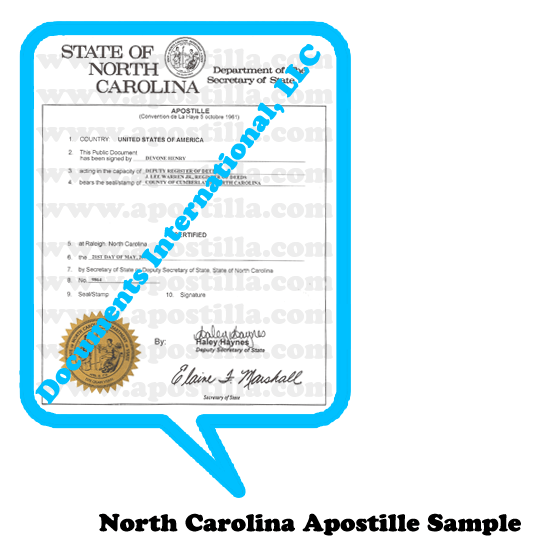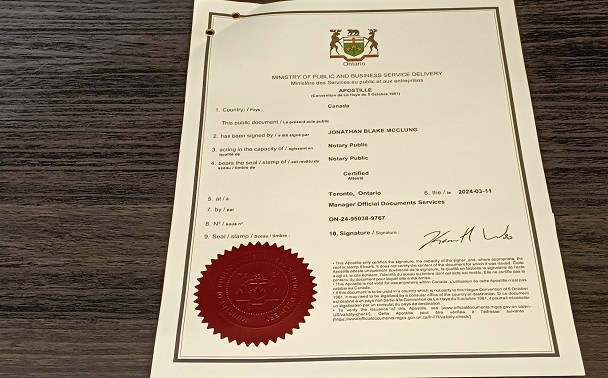Comprehending the Apostille Process: A Comprehensive Overview to International Record Authentication
Browsing the intricate landscape of international paper authentication can be daunting without a clear understanding of the apostille procedure. This guide carefully lays out the required actions, from identifying which papers require accreditation to submitting them for confirmation by the Competent Authority. Realizing the relevance of an apostille and recognizing prospective challenges, such as insufficient entries and language barriers, can dramatically enhance the authentication journey. What precisely specifies an apostille, and why is it so critical for papers destined for Hague Convention nations? These questions create the foundation of our expedition into this necessary legal procedure.
What Is an Apostille?
An apostille is a main certification that validates the credibility of a record for use in another nation. This qualification, provided by a designated authority in the country where the file originated, makes sure that the paper is acknowledged as valid and legit in the global arena. The process of getting an apostille includes several actions, including the confirmation of the document's signatures, seals, and stamps by ideal governmental bodies.
The apostille serves as a globally identified kind of verification, enabled by the Hague Convention of 1961. This treaty, officially understood as the Hague Convention Eliminating the Demand of Legalisation for Foreign Public Documents, standardizes the procedure of file accreditation amongst participant nations. The apostille itself is a standardized certificate which contains specific information, such as the issuing authority, the country of beginning, and the day of issuance.
It is necessary to keep in mind that not all papers are qualified for an apostille. Commonly, public records like birth certifications, marital relationship licenses, court orders, and academic diplomas receive this accreditation. Private papers, such as agreements and arrangements, may require notarization and additional actions to certify.
Significance of Apostille
Recognizing what an apostille is sets the phase for valuing its value in worldwide negotiations. houston tx apostille. An apostille, essentially a form of accreditation released by an assigned authority, verifies the credibility of a paper for usage in international nations that are signatures to the Hague Apostille Convention. This standardized procedure eliminates the requirement for additional legalization by consular offices or consulates, thus streamlining worldwide transactions
The value of an apostille can not be overemphasized. It makes certain the integrity and acceptance of necessary documents-- such as birth certifications, marital relationship licenses, and educational diplomas-- across boundaries. For services, it promotes the smooth conduct of global profession, mergings, and acquisitions by giving a trusted approach of record confirmation. This minimizes administrative hurdles, conserving both time and sources.
In addition, an apostille boosts legal safety and compliance. Governments and organizations can confidently rely on the credibility of papers birthing an apostille, minimizing the risk of fraud and misrepresentation. Hence, the apostille works as a vital tool in promoting worldwide cooperation and trust. Its function in fostering efficient and protected international deals highlights its indispensable value in today's interconnected world.
Papers That Call For Apostille
When involving in international deals or legal matters, details papers typically necessitate the verification supplied by an apostille. This ensures their acknowledgment and acceptance in nations that are signatures to the Hague Apostille Convention. More Info Frequently, personal documents such as birth certifications, marital relationship certifications, and death certifications need an apostille, specifically when they are used for processes like immigration, marriage abroad, or worldwide probate issues.
Educational files are another category frequently needing apostilles. Diplomas, records, and academic documents frequently need this verification for purposes such as pursuing additional education and learning, employment, or expert licensing in an international country (houston tx apostille). This action ensures that the documents are identified as legitimate and valid
Lawful records, consisting of powers of lawyer, affidavits, and court orders, also commonly necessitate apostilles. Get More Info Company files such as certificates of consolidation, bylaws, and commercial agreements might call for an apostille to promote international trade, develop foreign branches, or participate in cross-border legal process.
Actions to Obtain an Apostille

Getting an apostille entails a multi-step process that guarantees the authenticity and approval of your documents in foreign countries. The preliminary action is identifying which records require an apostille. houston tx apostille. Usual records consist of copyright, marriage licenses, scholastic transcripts, and corporate files
When determined, the document must be licensed by the appropriate releasing authority. This may involve registration by a notary public or verification by a regional or state authorities, depending on the sort of record. After accreditation, the file ought to be submitted to the assigned Competent Authority in the record's nation of origin. In the United States, for instance, this is typically the Secretary of State's office for each and every state.
The entry process usually calls for a finished application kind, the original paper, and a fee. Some jurisdictions might use the option of expedited handling for an added cost. Upon effective confirmation, the Competent Authority will fasten the apostille certificate to the record, therefore validating its credibility.
Typical Challenges and Solutions
Navigating the apostille process can present numerous usual difficulties that, if not appropriately addressed, might delay or complicate paper verification. Each nation has particular demands for the types of files that can be apostilled, and any kind of deviation from these can result in denial.
An additional usual obstacle is special info understanding the different handling times. Handling times can differ dramatically in between countries and even in between various regions within the very same country. It is vital to make up these variations when planning the apostille procedure to prevent unexpected delays.
In addition, language barriers can posture substantial obstacles. Files in a foreign language frequently need qualified translations, and any type of mistakes in translation can lead to more problems. Involving a specialist translation service can alleviate this risk.

Conclusion
Mastering the apostille procedure substantially enhances the efficiency of worldwide record verification. By understanding the requirement of recognizing and certifying required files, and navigating the submission to the Competent Authority, the procedure becomes extra convenient. Understanding of common difficulties, such as incomplete submissions and language obstacles, even more aids in protecting against possible delays. Ensuring records are appropriately apostilled facilitates their acceptance in Hague Convention signatory countries, thereby sustaining smooth global legal and management treatments.